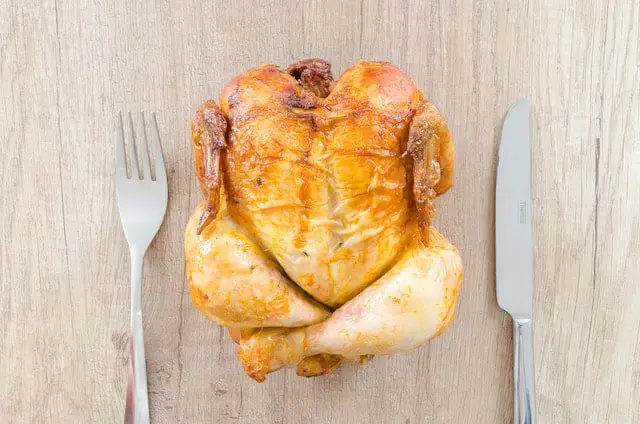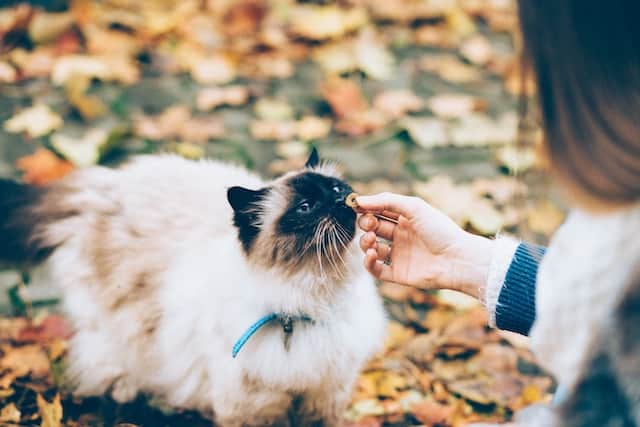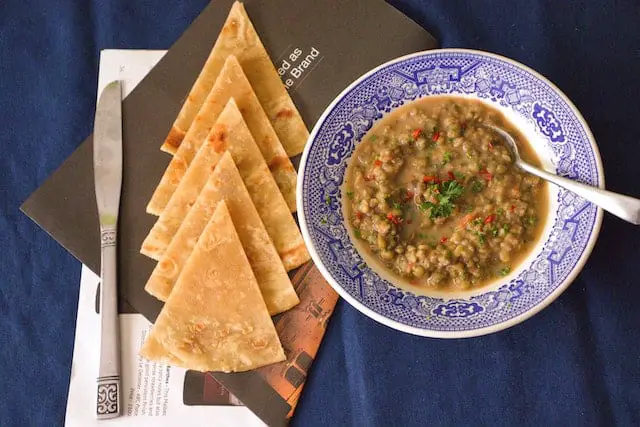What cooked food can I give my cat? Are you wondering what cooked food you can safely give to your feline friend? Look no further!
As a knowledgeable cat owner, it’s important to provide your furry companion with a balanced diet that includes both commercial cat food and occasional cooked meals. While it is essential to consult with your veterinarian before making any major changes to your cat’s diet, there are certain cooked foods that can be a healthy and enjoyable addition to their meal plan.
One of the most popular options is cooked chicken. Not only is chicken a great source of lean protein for cats, but it also contains essential amino acids necessary for their overall well-being. When preparing chicken for your cat, make sure it is boneless, skinless, and thoroughly cooked to avoid any potential health risks. Remember to remove any seasoning or sauces as they may contain ingredients that could be harmful to your feline friend. By incorporating small portions of cooked chicken into their diet occasionally, you can provide them with a flavorful treat while ensuring they receive the necessary nutrients.
Another tasty option for your cat is cooked fish. Fish such as salmon or tuna can be an excellent source of omega-3 fatty acids that promote healthy skin and coat. However, keep in mind that some types of fish may contain high levels of mercury which can be harmful if consumed regularly in large quantities. Therefore, moderation is key when offering fish as part of your cat’s diet. Additionally, ensure the fish is fully cooked and free from any bones before serving it to your feline companion.
As always, remember that each cat has unique dietary needs and preferences. It’s crucial to consult with your veterinarian before introducing any new foods into their diet or making significant changes. They will guide you on the appropriate portion sizes and frequency at which these foods should be offered based on factors such as age, weight, and overall health condition.
By providing a well-balanced combination of commercial cat food along with occasional servings of carefully prepared cooked foods, you can ensure your cat’s nutrition and enjoyment.
Cooked Chicken

You can definitely give your cat cooked chicken as a special treat, but remember to remove any seasoning or bones before serving it to them! Cooking methods such as boiling, baking, or grilling are all great options for preparing the chicken for your feline friend.
Boiling the chicken is a simple and effective way to cook it while retaining its nutritional benefits. This method helps preserve the moisture in the meat and keeps it tender, making it easier for your cat to chew and digest.
Nutritionally, chicken is a fantastic source of lean protein for cats. It provides essential amino acids that promote muscle growth and maintenance. Additionally, chicken contains vitamins like B6 and B12, which support energy production and overall cell function in your cat’s body. It also contains minerals such as zinc and iron that contribute to a healthy immune system.
Transitioning into the subsequent section about cooked fish: Now that you know how beneficial cooked chicken can be for your cat’s diet, let’s explore another tasty option – cooked fish!
Cooked Fish

Cooked fish is a great option to include in your cat’s diet. It’s high in omega-3 fatty acids, which are essential for their overall health and well-being. It helps improve their skin and coat health, and it also supports their cardiovascular system.
Remember to always remove any bones before serving to avoid any potential choking hazards or digestive issues for your feline friend.
High in omega-3 fatty acids
When it comes to feeding your feline friend, incorporating foods rich in omega-3 fatty acids can be a paw-some way to boost their diet! Omega-3 fatty acids are essential for cats as they provide numerous health benefits.
While fish is often considered a primary source of omega-3s, there are also plant-based sources that can be included in your cat’s cooked food. Flaxseeds and chia seeds are excellent options as they’re packed with alpha-linolenic acid (ALA), a type of omega-3 fatty acid. ALA is converted into eicosapentaenoic acid (EPA) and docosahexaenoic acid (DHA) in the body, which play crucial roles in reducing inflammation, supporting brain function, and promoting cardiovascular health.
Incorporating omega-3 fatty acids into your cat’s diet can have several benefits for their overall well-being. These healthy fats help maintain healthy skin and coat by reducing dryness, itchiness, and dandruff. Cats with allergies or skin conditions may particularly benefit from an increased intake of omega-3s.
Additionally, omega-3s support cognitive function and promote a healthy heart. They have anti-inflammatory properties that can help reduce joint pain and stiffness in cats with arthritis or other inflammatory conditions. So, when preparing cooked food for your furry companion, don’t forget to include some plant-based sources of omega 3 fatty acids like flaxseeds or chia seeds to ensure optimal health for your beloved kitty!
Good for skin and coat health

Incorporating foods rich in omega-3 fatty acids can do wonders for your furry friend’s skin and coat health. These essential fats aren’t produced by the cat’s body, so it’s crucial to include them in their diet. A balanced intake of omega-3 fatty acids promotes healthy skin and a shiny coat, preventing dryness, itchiness, and flakiness.
Here are four foods high in omega-3 fatty acids that can enhance your cat’s skin and coat health:
– Salmon: This fish is a fantastic source of omega-3s. It provides essential nutrients like EPA and DHA, which help reduce inflammation and promote a lustrous coat.
– Flaxseeds: Ground flaxseeds are an excellent plant-based option for boosting omega-3 levels. Sprinkling some on your cat’s food can support healthy skin by reducing dryness.
– Chia Seeds: These tiny seeds pack a punch when it comes to omega-3 content. Adding a small amount to your cat’s meals may improve their fur texture while nourishing the skin.
– Sardines: Rich in both protein and omega-3s, sardines make a tasty treat for your feline companion. They contribute to overall skin health and give the coat an attractive sheen.
Regular grooming is also vital for maintaining your cat’s skin and coat health. Brushing helps remove loose hair, distribute natural oils throughout the fur, prevent matting, and stimulate blood circulation. Additionally, if you notice signs of dryness or irritation on your cat’s skin, consider natural remedies such as oatmeal baths or coconut oil application.
To ensure the safety of these foods mentioned above, remember to remove any bones before serving them to your feline friend. Bones can pose choking hazards or cause injury if swallowed improperly. Now let’s delve into how you can properly prepare these nutritious options for your beloved pet!
Remove any bones before serving
Make sure to always remove any bones before serving them to your furry friend, as they can pose a choking hazard or cause injury if swallowed incorrectly. Cats have delicate digestive systems that aren’t equipped to handle bones. The sharp edges of bones can scratch and damage the throat, esophagus, stomach, or intestines when ingested.
Additionally, bones can splinter and get stuck in the mouth or throat, leading to painful injuries. Bone ingestion can result in serious health issues for cats. If a bone gets lodged in their throat or gastrointestinal tract, it may require surgical intervention to remove it safely. This procedure can be both costly and stressful for your cat.
Furthermore, swallowing small pieces of bone may cause blockages in their digestive system, leading to discomfort and potential complications. Discussing the importance of removing bones from cooked food for cats and the potential risks associated with bone ingestion is crucial for ensuring your pet’s safety and well-being.
Now that you understand why it’s essential to remove bones from your cat’s food, let’s move on to discussing another safe option: cooked turkey.
Cooked Turkey
If you’re looking for a tasty treat to share with your feline friend, cooked turkey is a fantastic option! Not only does it provide an alternative source of protein, but it also offers several nutritional benefits. Turkey is rich in essential amino acids that are necessary for your cat’s overall health and well-being. It is low in fat and calories, making it a great choice for cats who need to maintain or lose weight.
Incorporating cooked turkey into your cat’s diet can provide them with a good amount of lean protein. This helps support their muscle development and maintenance. Additionally, turkey contains important nutrients such as vitamin B6, niacin, and phosphorus which contribute to healthy skin, coat, and bone strength. These nutrients are crucial for cats of all ages.
To give you a better idea of the nutritional content of cooked turkey per 100 grams (3.5 ounces), here’s a table:
| Nutrient | Amount |
|—————–|————-|
| Protein | 30 grams |
| Fat | 4 grams |
| Calories | 160 kcal |
| Vitamin B6 | 0.7 mg |
| Niacin | 8 mg |
| Phosphorus | 250 mg |
Remember to serve cooked turkey in moderation as part of a balanced diet for your cat. It should not make up more than 10% of their daily calorie intake to ensure they receive all the necessary nutrients from their regular cat food. Always remove any bones before serving as they can be a choking hazard or cause digestive issues if ingested by accident.
Frequently Asked Questions
Can I give my cat cooked beef or pork as part of their diet?
Safe meats for cats include cooked beef and pork as part of their diet. However, it’s important to note that there are alternatives to beef and pork such as chicken or fish that are also suitable options for your cat’s nutritional needs.
Are there any specific seasonings or spices that are safe to add to cooked food for cats?
Spices and seasonings can be risky for cats. Stick to a balanced diet without additives or spices. Consider alternatives like commercial cat food, which provide essential nutrients tailored for feline health.
How should I prepare cooked food for my cat to ensure it is safe and nutritious?
To ensure safe and nutritious cooked food for your cat, focus on incorporating a balanced diet with the benefits of added moisture, improved palatability, and potential health benefits. Use safe cooking methods like boiling or baking, avoid harmful ingredients, and consult a veterinarian for specific dietary recommendations.
Can I feed my cat cooked food as their sole diet, or should it be given as an occasional treat?
Cooked food can be a healthy option for a cat’s diet, but it should not be their sole diet. Just like humans, cats need a balanced meal. Cooked fish is nutritious, but consult with your vet to ensure it meets all their dietary needs.
Are there any cooked foods that I should strictly avoid feeding my cat, even in small amounts?
Safe cooked foods for cats include lean meats like chicken, turkey, and fish. However, it’s important to avoid feeding them cooked bones, onions, garlic, grapes, raisins, chocolate or anything containing caffeine as they can be potential dangers for cats.
What Cooked Food Can I Give My Cat
So there you have it, a list of cooked foods that you can safely give to your feline friend. From tender cooked chicken to succulent fish and delectable turkey, these options are sure to satisfy your cat’s taste buds while providing essential nutrients.
Remember to always remove any bones and seasonings before serving, and consult with your vet if you have any concerns.
Feeding your cat cooked food can be a great way to bond with them and ensure they’re getting a balanced diet. However, it’s important to remember that cats are obligate carnivores, meaning their bodies are designed for a meat-based diet. While the occasional treat is fine, it’s best not to rely solely on cooked food as their main source of nutrition.
In conclusion, incorporating small amounts of cooked chicken, fish, or turkey into your cat’s diet can be a tasty and nutritious addition. Just make sure to prepare the food properly and keep portion sizes in mind. And as always, consult with your veterinarian for guidance on what foods are safe for your specific cat’s needs.

Stephanie Ansel is a well-known writer and journalist known for her unique and captivating writing style. She has written many articles and books on important topics such as the lifestyle, environment, hobbies, and technology and has been published in some of the biggest newspapers and magazines. Stephanie is also a friendly and approachable person who loves to talk to people and learn about their stories. Her writing is easy to read and understand, filled with lots of details and information, and is perfect for both kids and adults who want to learn about important topics in an interesting way.






